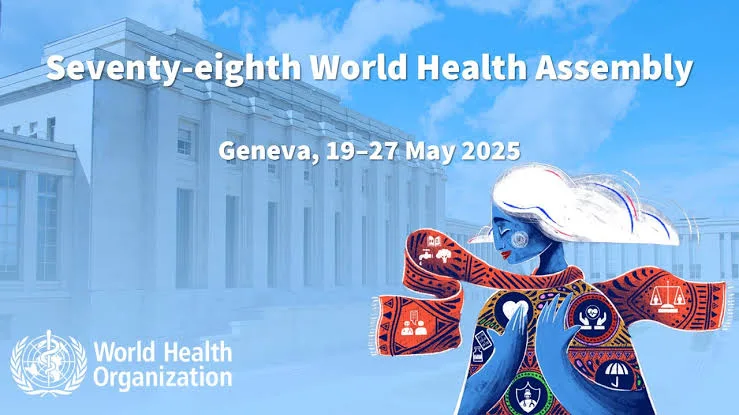The 78th World Health Assembly, held from May 19 to 27, 2025, in Geneva, Switzerland, brought together global leaders to address pressing health challenges. A key focus was the World Health Organization’s (WHO) response to health emergencies, including outbreaks of cholera and mpox.
Cholera Outbreaks
Cholera remains a significant global health threat, with 535,321 cases and 4,007 deaths reported to WHO in 2023 from 45 countries. The disease is often linked to limited access to safe water, basic sanitation facilities, and poor hygiene practices. WHO’s efforts to combat cholera include.
- Strengthening Surveillance’s : Enhancing disease
- surveillance systems to quickly detect and respond to outbreaks .
- Improving Water, Sanitation, and Hygiene (WASH): Implementing WASH interventions to prevent cholera transmission.
- Oral Cholera Vaccines (OCV):
- Utilizing OCV campaigns to prevent and control cholera.

Mpox Outbreaks
The WHO Director-General has declared the mpox outbreak a public health emergency of international concern, citing the rapid spread of the virus in Africa and potential for further transmission. Mpox, caused by an Orthopoxvirus, has been reported in the Democratic Republic of Congo for over a decade, with a steady increase in case
WHO’s Response
WHO is working to support countries in responding to health emergencies, including :
- Coordinated International Response:
- WHO is scaling up efforts through coordinated international action to support countries in bringing outbreaks under control.
- Temporary Recommendations: The Director-General has issued temporary recommendations to countries to enhance preparedness and response.
- Global Partnerships: WHO is working with partners to strengthen health systems, improve disease surveillance, and enhance response capacities.
The World Health Assembly’s discussions on health emergencies highlight the need for sustained global cooperation and investment in health systems to address these pressing challenges.
